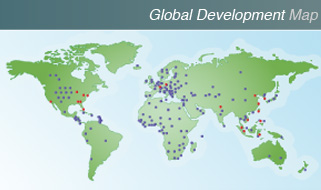-
“…Beware the Ides of March”
Posted March 14, 2012
“…Beware the Ides of March”
(Julius Caesar)
There have been neither comets in the skies, nor other natural portents of grave consequence that I have observed lately. But a court in India issued a ruling recently which may have a seismic impact on the future of drug development worldwide. India did not issue patents to drug makers at all for about 35 years, up until 2005. It used this “hiatus” to become the world’s largest “generic” drug manufacturer, and exporter of cheap drugs to the undeveloped and emerging countries of the world, as well as to service its own enormous population. In this case, a lower Indian court ruled that Bayer must license a cancer drug to an Indian manufacturer, and mandated a price basically one fifth of that which Bayer was charging. This generic will be for use in India only, on paper. But there is little doubt that it will make its way around the world in this form at this price.
There is a second case that will be decided soon by India’s Supreme Court involving Novartis and Gleevac, another cancer drug. While the legal aspects differ somewhat, the principle at issue is the same: India’s past policies favoring the manufacturer of cheap generic drugs is in opposition to international patent law.
The tension we see playing out in India is something we see playing out in different forums all over the world. How will governments handle the ever-increasing costs of medicine? Ironically the “new” India is trying to become the partner of choice for the pharmaceutical industry for drug manufacturing and human clinical trials. For this to succeed, there must be a new direction in the partnership between Indian industry and policy makers. But as we see from this recent decision, it is not so easy to simply drop your partner to dance with another. The mandate to deliver health care at an affordable price has powerful political gravity. India is vying with China for the billions and billions of dollars in drug development and clinical trial money that will be spent by the Pharmaceutical and Biotech industries every year. Much of the decision on where to place this development infrastructure is based upon cost and regulatory “friendliness” to the industry. Both countries make compelling cases here. Much is also driven by the sales potential of their internal markets. Again, both make compelling cases. China, however, has made it clear to industries in every area: if you want to sell in China you need to manufacture in China. In a way, with these court decisions (assuming they stand), India is saying the same thing. Taken together, these two countries are the future growth engine of the pharmaceutical industry. Make no mistake, demographics IS destiny here.
These factors are of crucial importance even for a company of our size. We have placed our initial bet on China. Our wholly owned subsidiary, Neuralstem China, is in the final stages of cueing up our cell therapy stroke trial. In the long run, we do not believe that India can compete with China. In the short term, India has many advantages from a medical industry basically trained in the British/English speaking tradition, to clinical trial and manufacturing industries already well versed in FDA-compliant quality controls and processes. By taking an “anti-industry” stand on Patent protection, they are greatly lessening their appeal.
We will undoubtedly see this competition between China and India play out in many industries, but none with the impact of health care. Both countries have (literally) a billion people clamoring for improved quality of life, and chief among those aspirations, is access to modern medicines. How they deal with the tension between making those drugs available at a cost that their people can afford; and an industry used to free market pricing will in many ways shape the biotech industry for a long time to come. There are reportedly fewer than 200 patients in India who use Cipla (the drug in question); and this case may seem like a small thing. But beware the Ides of March indeed. This case has the potential to shake and possibly shape an entire worldwide industry.






